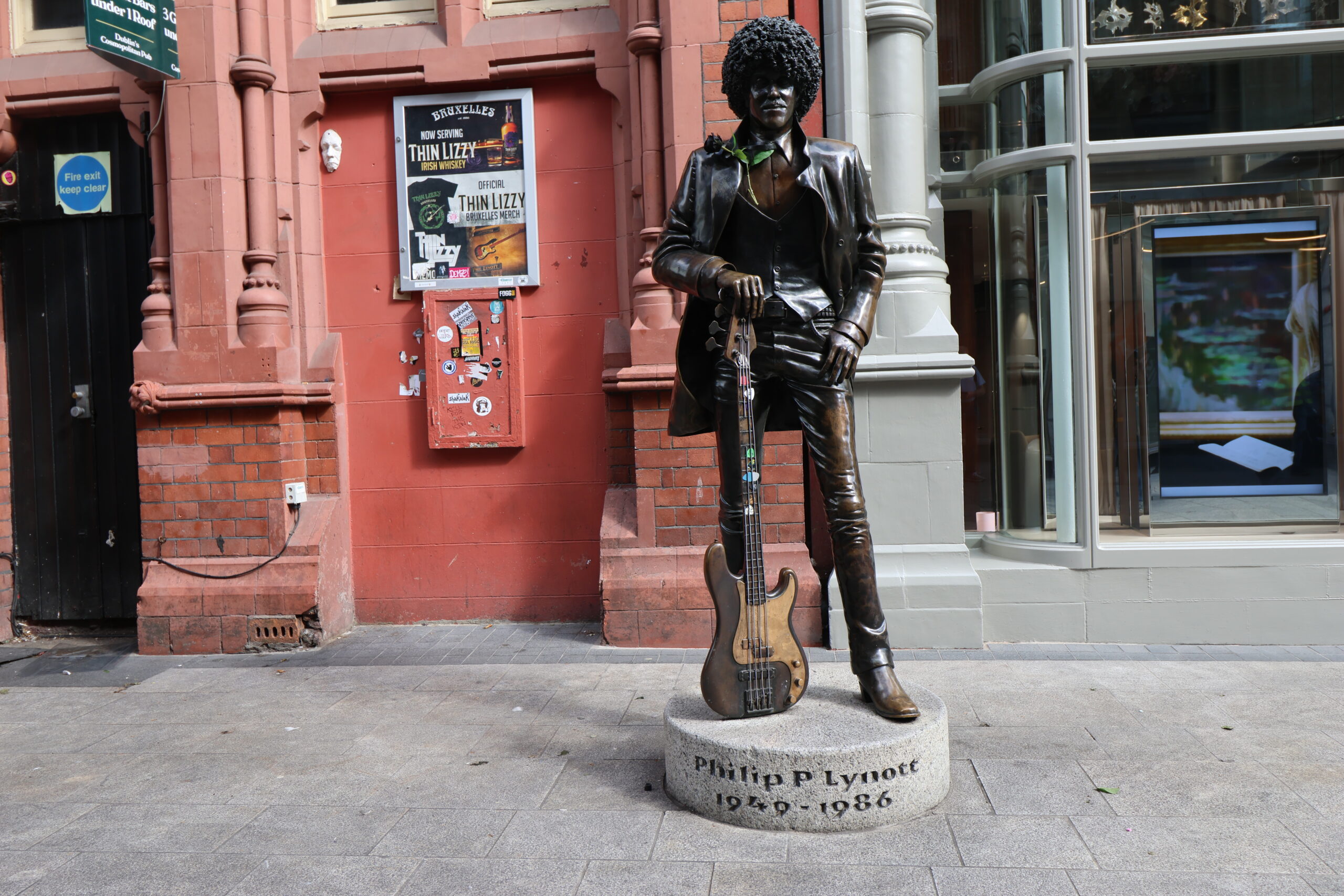
There is a rich musical history associated with the city of Dublin. Acts such as U2, Thin Lizzy and Sinead O’Connor formed their musical identity here before breaking into the world stage. In recent years, the likes of Fontaines DC, Hozier and CMAT have gained critical acclaim, performing to audiences all over the globe. As is the case with most artists, each of these musicians has been considerably influenced by the place in which they grew up. Themes of Ireland, and Dublin particularly, are inescapable across each of their repertoires.
We see the ways in which Dublin heralds its musical tradition all across the city, from the Irish Rock ‘n’ Roll Museum in Temple Bar, to the various music history walking tours which take place each day. But how meaningful are these attractions? For a city of such rich history, there is an overriding neglect of the music scene in Dublin which we see through the decline of live music venues or the lack of support provided to local artists.
Consider the SFX Theatre as an example. It used to be a concert venue which opened its doors to the people of Dublin in 1957 and hosted a wide range of Irish acts, as well as other performers such as The Smiths or The Clash. It stood as a pillar of Dublin’s live music scene until 2001 when it was shut down and its concerts were relocated to the Ambassador’s Theatre. Whilst one could assume that the SFX was closed to be renovated into something of equal cultural significance, the truth is that the venue was demolished in 2006 to be replaced by an apartment complex. Meanwhile, the Ambassador’s Theatre down O’Connell Street stands empty most nights of the week, other than for the odd live podcast hosted there.
Closures such as these are a reflection of Dublin’s passive attitude towards music. No active attempt is made to implement policies which would protect Dublin’s music scene, and local artists feel the severe impact of this situation. Shain Shapiro, a leading music and cultural policy thinker, wrote the book This Must Be The Place on this very issue. Shapiro states that each city has its own music ‘ecosystem’, formed through a wide range of factors. He highlights the consequences stemming from events such as the closing of a music venue.
The SFX Theatre remains a good example to communicate his concerns. When the theatre closed, a person whose first concert experience was seeing R.E.M. at the venue in 1984 will feel a sense of personal loss. Additionally, the light and sound technicians that worked at the SFX are now jobless, and some of them may begin to seek a different type of work due to the dwindling live music spaces in Dublin. The concert promoters who booked performers at the theatre for over a decade now have to seek alternative venues for their acts. Perhaps they will find a suitable one, or maybe they will decide not to consider Dublin for a spot on the next tour. Furthermore, local artists grow uninspired with their surroundings and decide they must leave the city to creatively flourish. In consequence, the people of Dublin have less access to live music and its positive effects. With each closure, the wider music ecosystem which exists in the Irish capital is harmed and the city’s music culture is weakened.
Music holds importance beyond streaming platforms. The ability to attend concerts or listen to local artists busking on the street enriches our everyday experience. It is a simple truth that music makes our lives better and this is what Shapiro’s research endeavours to highlight. He aims to convey that if policy-makers viewed music as a tool for economic growth and took action to preserve the city’s music ecosystem, then everyone from artists to the wider community would benefit. The unfortunate reality remains that the music scene, along with so many other artistic aspects of the city, is not being protected in Dublin. The result is even larger emigration and ultimately – a loss of culture, which touches us all.






